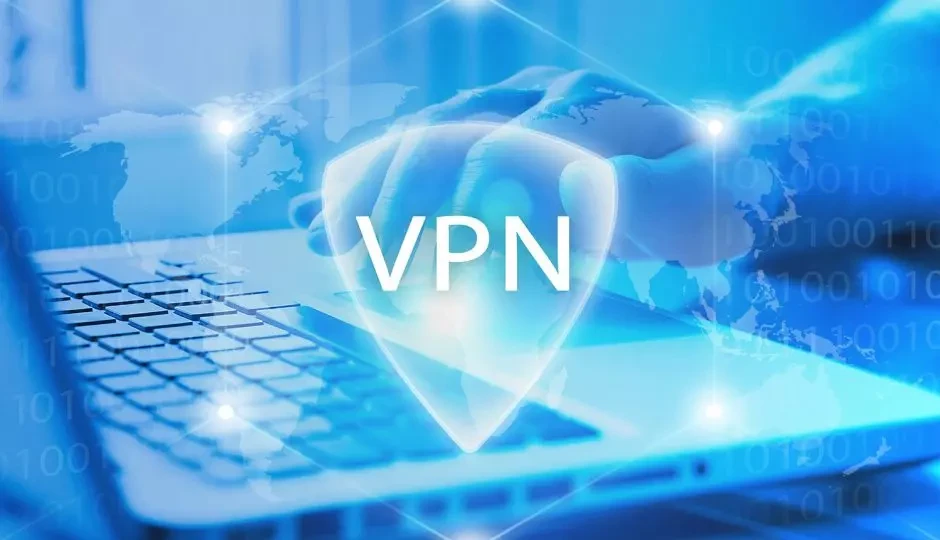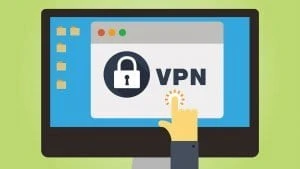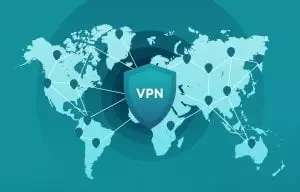
What is a VPN and is it Legal to Use in an Online Casino?

There are a number of reasons why a gambler might want to use a Virtual Private Network or VPN to access online gambling sites. This can include unlocking geographically locked content, protecting your online data, and much more. While there can be many benefits to using a VPN to access online casinos, it’s certainly frowned upon by some. They have been known to dish out some harsh penalties if you’re caught using one.
To help you understand the do’s and don’ts around using a VPN for online betting, this article will answer the following questions: What is a VPN? Is it legal and safe to use a VPN to access an online casino? And finally, when can you legally use a VPN to gamble online?
What is a VPN?

‘VPN’ stands for Virtual Private Network and the name gives a good clue as to what it is and what it does. A VPN hides your IP (Internet Protocol) address and establishes a secure and encrypted connection to the internet. This means that once you’re connected to a VPN, you have created your own private network that gives you privacy and anonymity while you surf the web.
One of the great benefits is that you can connect to a server in any location around the globe. When you choose to connect to a server in a new location via a secure VPN it masks your IP address with one from the location you have selected. So, you can appear to be in a completely different country. We’ll go into more detail about how that’s used with online casinos later in the article. However, all of this combined means that your online actions are nearly untraceable, giving you greater data privacy and protection.
How does it work when playing at an online casino?
There are some grey areas when it comes to using VPN to access online casino sites. Sometimes there are legitimate reasons why you would want to use one but often a VPN can be used to cheat the system. This is the main reason why most betting sites don’t like you to use a VPN to bet on their platform.
However, as long as the country you live in allows the use of VPNs, you won’t be breaking any laws by using one to log in to your betting account. You might be someone who is simply concerned about data protection and you could just be taking an extra step to conceal your identity online.
It does become illegal if you’re using it to create multiple aliases to claim the same welcome offer over and over again. This is called ‘bonus abuse’ and most betting sites have installed software to help them spot users who are attempting to cheat the system like this.
Using a VPN to access online gambling sites also becomes illegal when you are trying to access online casinos from a country where gambling is illegal, or from a jurisdiction with different gambling laws and regulations. For example, gambling is legal in the UK, France, Spain, and Sweden but the regulations are slightly different in each country. So, using a VPN to access a UK only gambling site from Spain would be illegal.
Why do gamblers use a VPN?

Gamblers might want to use a VPN to create privacy and anonymity while gambling to protect their online data from hackers and government surveillance. Online gambling is a tightly regulated market and therefore, it’s possible that your internet activity is being monitored to check for any wrongdoings. However, if you’re just an average Joe looking to place a few bets and you don’t plan on doing anything wrong, why should you be watched?
Probably the most common reason why some online bettors choose to use a VPN is to access geographically locked games and content. For example, UK online casinos often ban certain countries and jurisdictions from gambling on their site. So, if you’re from the United States and want to access games listed on a UK online casino, you can use a VPN to tell the site that you’re in Watford rather than Washington DC. This will give you full access to the platform because the website thinks you’re in the correct country. This may be less secure but you will still be able to play.
Alternatively, you could be on holiday and want to place a bet on a UK online casino. However, you won’t get past the home screen because you’re in another country. Using a VPN will circumnavigate the geographical restrictions and allow you to place the bet.
Finally, we have already touched on it, but some gamblers might want to use a VPN to create multiple aliases to claim the same welcome package over and over again.
What happens if a gambling site catches you illegally using a VPN?
Unless you live in one of the countries where using a VPN is illegal, like China, Russia, or North Korea, it’s extremely unlikely that you will go to prison for accessing an online casino via a secure VPN service. However, you will have broken the terms and conditions you agreed to if you use a VPN illegally to get around country restrictions or to create multiple aliases and accounts. In the event that you are caught one of two things could happen:
- The online gambling site will give back your deposit and close your account.
- The online casino will confiscate your deposit and winnings before closing your account.
So, it really depends on where you get caught and who you get caught by. If you live in a country where VPNs are legal, but you have used it illegally, you will be exposed to the risk of losing any money you deposit into that particular account.
Conclusion: should you gamble with a VPN?
If you’re someone looking to use a VPN as a security protocol to protect your online data and you live in a jurisdiction that allows anyone to connect to a VPN server, there’s no reason why you shouldn’t use one. However, if you want to use a VPN to overcome geographically locked content or claim multiple welcome bonuses, just remember that this is classed as an illegal use of a VPN. It can result in the online casino taking action to confiscate your winnings and betting funds, as well as closing your account permanently.

Author
Content Writer